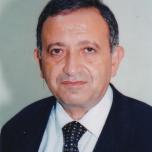Main Projects / Activities
Empowerment of migrant workers: Building the capacity of large groups of migrant workers to lead self-advocacy initiatives, through MCC’s free educational and training programs, and providing them with support and safe spaces (the MCCs) and assistance.
Fostering Social Change: Awareness-raising and education addressing discriminatory attitudes held by employers and the general public, led by ARM and migrant workers empowered through MCC. These advocacy efforts aim to modify attitudes and perceptions towards foreigners, and to increase public support for non-discrimination, better legal protection and the abolishment of the Kafala System.
Celebrating Cultural Diversity: Promoting migrant worker cultural presence and community, to expose the local population to these significant but largely ignored social groups in Lebanon.
Geographical Scope: Beirut, Saida, Jounieh (through the current MCCs), and national/regional through our advocacy and campaigning efforts.
Fields of Work: Empowerment of migrant workers / women domestic workers, advocacy, awareness-raising, capacity-building, education, community-building, cultural and social activities.

